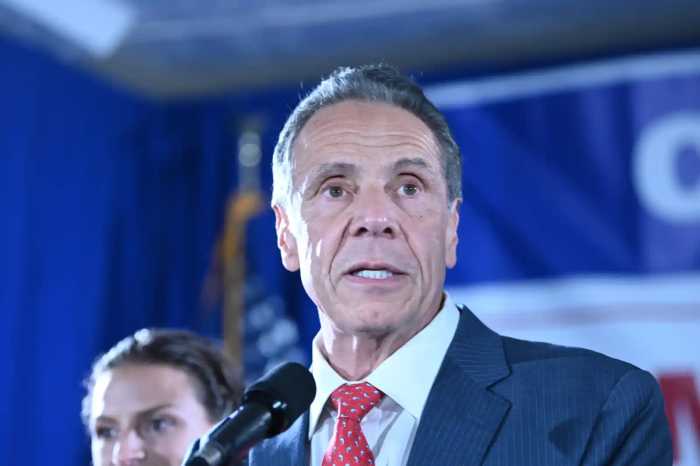The American Kaleidoscope
If the truth will set you free then our society is shackled by pretense, misconception and outright denial. Truth no longer thunders, it mumbles. There are moments when the verities prevail but truth is too often on guard about giving offense to speak its mind too freely. It is said the best counselors are often the dead; for books will speak plain when the living among us blanch.
So it is a rare and glorious thing when truth is spoken in public life, by a public figure, whatever the consequences. In early 1946, at Fulton Missouri, Winston Churchill, the old realist, took his case to the American people and said what no one wanted to hear: From Stettin in the Baltic to Trieste in the Adriatic, an Iron Curtain had descended across the continent. The Soviet Union, our ally during WWII, had now become our implacable foe sweeping aside the agreements at Yalta as it placed its heavy heel on the necks of the ancient states of Central and Eastern Europe. It was unwelcome news; the American people wanted Russia to be a partner in shaping the post-war world for freedom and democracy. To hear that a new and, perhaps more formidable, enemy had risen out of the ashes of a battle-scarred earth was almost too much to bear. But the truth had to be spoken and who better than Churchill to give a fearful and neglected truth a voice.
I was reassured that such gallantry is no longer a ghost of the past with Prime Minister David Cameron’s speech at the “Annual Munich Security Conference.” Cameron says the U.K.’s young Muslims find it hard to identify with traditional Muslim practices at home by their parents. But, says Cameron, they also find it hard to identify with Britain: “Under the doctrine of state multiculturalism, we have encouraged different societies to live separate lives apart from each other and apart from the mainstream. We’ve failed to provide a vision of society to which they feel they want to belong. We’ve even tolerated these segregated communities behaving in ways that our society would never tolerate from its citizens such as forced marriages, hate speech and terrorist incitement.” Cameron goes on by saying that a passively tolerant society is dangerous because it says to its citizens that “as long as you obey the law we will leave you alone.” Cameron rejects this view of standing neutral between different values: “I believe a genuinely liberal country does much more; it believes in certain values and actually promotes them. If a society lacks the confidence in its own values; it is no wonder so many Muslims reject them.”
Cameron’s speech has relevance for us in the United States. England, after all, was the birthplace of the U.S., her ideas and culture became the solvent that formed our republic. America, although it initially repudiated Europe, was actually an extension of European civilization. Moreover, Lawrence Fuchs, in his book The American Kaleidoscope stated that we are the only society that has made diversity itself a source of national identity and strength. Alexis De Tocqueville, the French chronicler of early America, marveled how America made loyal citizens of its new arrivals by civic participation, which was, in his view, the great unifier. A century or so later the Swedish economist Gunner Myrdal defined this cement as the American Creed that reflects, as Crevecoeur once said, a new race of men based not on bloodlines but ideals and beliefs which Myrdal identifies as the essential dignity and equality of all human beings, of inalienable rights to freedom, justice and opportunity. As Myrdal approvingly noted, the schools teach the principles of the creed, the churches preach them and the courts hand down judgments reflecting them.
There is, however, a catch in this seamless web of acculturation. Immigration and multiculturalism work only when those of foreign descent celebrate not only what is distinctive in their own culture but also what they hold in common with their adopted country. If a portion of its new arrivals see America as irredeemably oppressive, hegemonic and satanic then synthesis it will not achieve synthesis but its opposite, cultural and social apartheid. The Muslim population is largely a law abiding and hardworking people but there is no denying an element of radicalism that is bent on the idea of jihad against America. The evidence is so overwhelming the very question is academic. There are also serious questions raised though not proved on how cooperative Muslim leaders have been in working with law enforcement to destroy and eviscerate these elements.
Congressman Peter King thinks it’s a good idea to ask these questions. A letter sent by 80 people in the religious community, which appeared in last week’s paper, opposes Congressman King’s intention to hold hearings involving the American-Muslim community. I certainly understand their concern. Religious voices are important intermediaries in our society and we must never be deaf to their appeals. Their hope for universal brotherhood, insistence for human justice and their advocacy for charity and understanding reflect the highest ideals of our shared humanity. Unfortunately, their legitimate concern became overwrought when they compared King’s inquiry as tantamount to the Japanese-American internment camps, the McCarthy witch hunts and the general racism and anti-Semitism that has afflicted black and Jewish Americans respectively. Somehow the letter missed references about comparing Congressman King and his committee to Torquemada and the Spanish Inquisition.
You can close the door on reality but you cannot keep it locked. The United States has a big fat bull’s-eye on it and common sense as much as sensitivity must play a role in guiding our actions. Regarding these hearings Congress needs to be sensitive, respectful and circumspect. But it also must follow the evidence wherever it leads. It is not so much groups that are being investigated in these inquiries as individuals within those groups. The Constitution, after all, revolves around individual rights and not group rights and it would be a more hygienic society if we thought more in terms of the individual than the aggregate. To allow an individual to hide behind any group or organization whether it is a police officer’s shield, a cleric’s garb or a person’s ethnicity or religion permanently sealed off from the light of justice is not only immoral, but foolish and dangerous. Let us not deceive ourselves any longer; rot can take root in the most pristine and sacred of settings. It is incumbent upon law enforcement and our government officials to peer, with the proper oversight, into the dark corners for the seed of decomposition; for the sooner we can sever its gangrenous limbs the easier it will be for a common purpose to bind us together and the less likely that tribal hostilities will drive us Americans, all Americans, irrevocably apart.
































